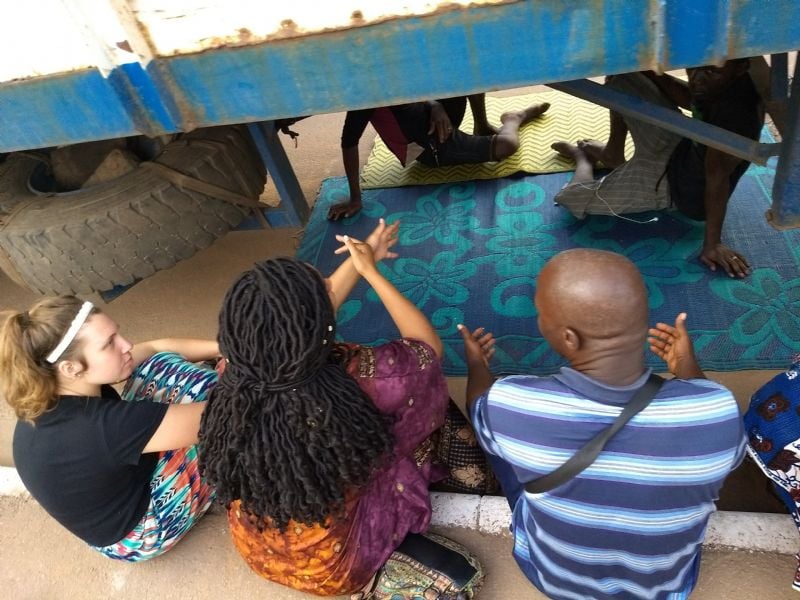
Evangelism in the Port of Abidjan and San Pedro
This past month was incredible. My team and I spent time conversing with truckers underneath their trucks in port Abidjan. We talked about their lives, family, and, most interestingly, how they viewed God, what religion meant to them, and who Jesus is.
Most of them arrive at the busy port of Abidjan to weeks before their goods actually arrive. They’re paid a little for food and drink, which they buy from street vendors scattered about. They sleep in the their trucks, eat meals underneath in the shade, and wait for business to arrive. Apprentices keep watch over the vehicle every hour of the day, and are dependent on their driver for food and care.
Four days a week, we took a taxi from our little apartment in the city to the port. Wandering about amidst clamoring trucks and clouds of dust, we found little culverts of shade where men were only too glad (most of the time) for a discussion. We sit down and they offer us tea – bitter herbs mixed with sugar best described as tasting like the color green.
I could go on and on about these conversations. Perhaps it should be said first, that I was little prepared for evangelism. What I wanted most was to understand their lives and hear about their family and homes. Many come from all over West Africa. Most are Muslim or nominally catholic. All are extremely generous, and love to smile.
Evangelism happens between people. It’s a fancy word for an activity quite prevalent in the world. Each person stands for something. Each person upholds some truth, some worldview, some way of living or being. Our very lives demonstrate what we believe. Speaking about beliefs is only the tip of the evangelism iceberg.
Talking about our core beliefs is actually quite difficult at times, whether because we’re afraid of what others may say, or we’re unsure for ourselves. We’re afraid of rejection, embarrassment, or the general discomfort of disagreeing with someone. In school I was often told “Don’t mess with people’s core views!” Beliefs are the unassailable strongholds which should simply be left alone.
However, I like to think that views are open to change if someone is willing to sit down with me and share a reasonable alternative. To this end, we asked the truckers all about their perspectives on truth, religion, God, and Jesus.
Many truckers referred to a teacher in Burkina Faso known as “Jaffa.” Jaffa teaches that Christianity and Islam are the same, and one can accept both of them at the same time. These moments were among my favorite. “How come Christians worship in different buildings?” I asked. “How come you, a Muslim, would be forcibly removed from your home if you abandoned Islam?” (A very real scenario for many the young boys we talked to).
In turn, we shared the Good News. I am thankful for these golden moments of bonding with these men underneath trucks in Port Abidjan and San Pedro. Over three weeks, we shared the gospel with 400 individuals, prayed around 50 into a relationship with Jesus Christ, and baptized one.
As exciting as it is to baptize, its love that is the most rewarding. It’s not numbers which interest me at the end of the day. Billy Graham witnessed to millions around the world and saw millions step into relationship with Christ. My own grandparents witnessed to many in India, and saw only a handful receive Christ. The gift, I think, at the end of each day out in the port, was the slow but steady change I felt in my own heart, a greater love for these West Africa truckers, for my teammates, and for the opportunity I have to live a gospel-centered life.
Praying for each of you at home, that God works to grow us in love for Him and the people around us.
Blessings,
Zach








